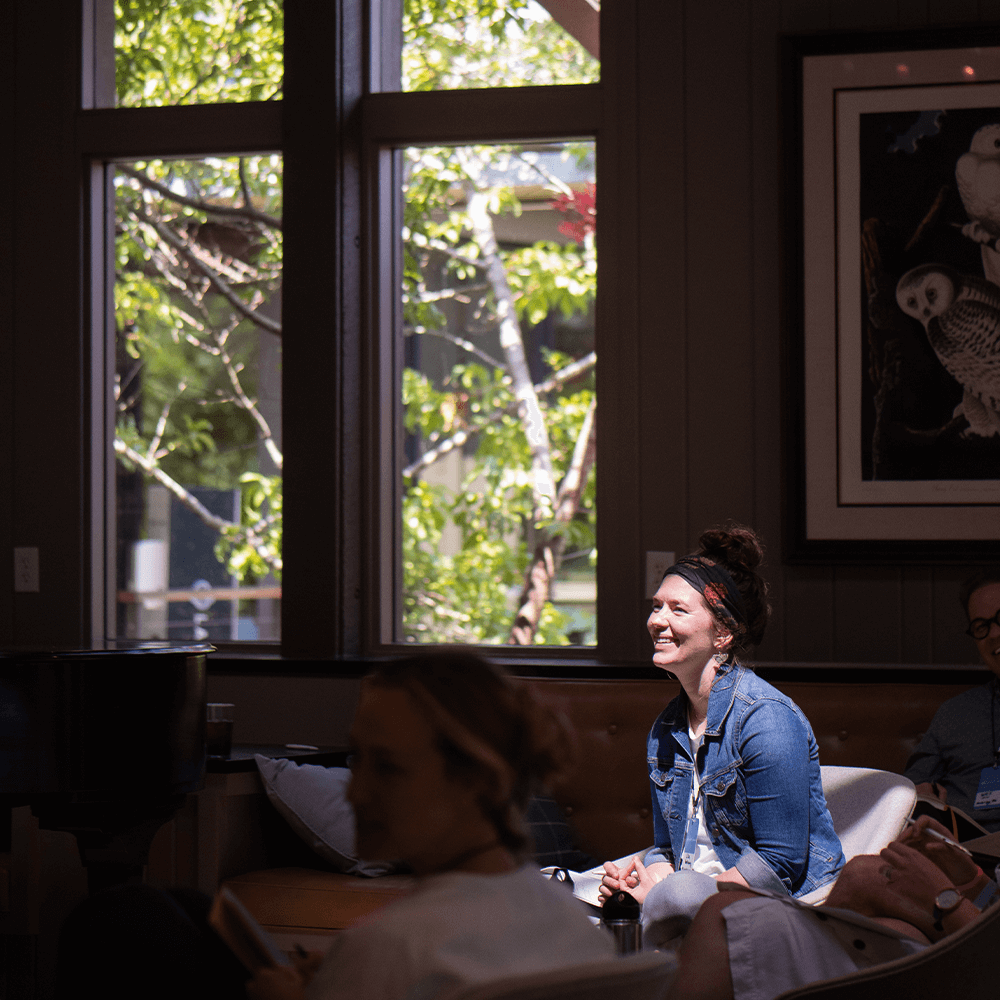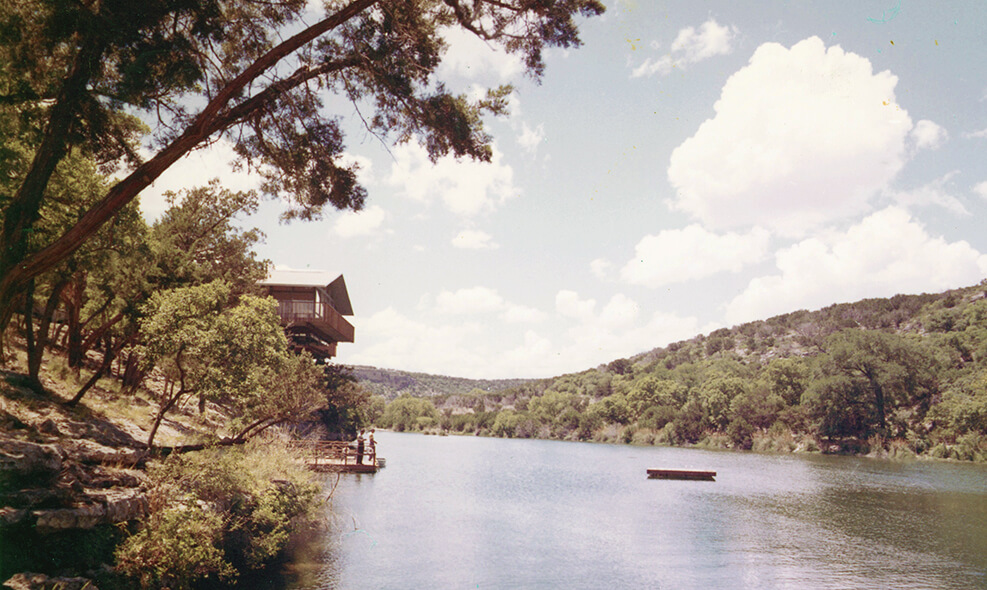

Everyone can get a good idea of what we are up to, and even what we value, by looking at the upcoming retreats listed on our website. COVID made that calendar pretty bare for two years now. We’ve tried to maintain one public, open retreat every month—though those retreats have been smaller than usual, so you are right to say it’s been tricky to visit.
But this is changing! This summer should mark the re-establishment of a steady stream of the classic Laity Lodge retreats that anyone can readily sign up for and attend. That’s our baseline, and it’s vital to everything else that might happen out here.
Quite a lot, actually. Behind that public retreat listing is another calendar that accounts for the full sweep of Lodge events, including partnerships, micro-retreats, and an increasing number H. E. Butt Foundation initiatives. All of these involve us working with other institutions and individuals to craft retreats that promote our shared strategic ends.
A good example of a partnership retreat is one we just hosted with Baylor University’s Soundings Project. This group of thirteen Texas congregations are engaged in a multi-year project designed to help both the university and the churches discern purpose and vocation.
Then, just a few weeks later, we hosted a group of scholars brought together by Duke Divinity School’s Initiative in Theology and the Arts. These scholars are the next generation of academic leaders, and they are being brought together now in order to cultivate a sense of camaraderie and friendship that will color their work and have a ripple effect outside the academy in the years to come.
Both of these groups are centered around some of our longstanding concerns: vocation, Texas churches, theology, the arts, friendship. And they value the opportunity to be here—they recognize that gathering at the Lodge has a shaping impact on their work together.
The Foundation has built a legacy of operating Canyon-based programs like Laity Lodge. Much of the new work happens under the umbrella of a program called Community Engagement—work that is anchored to places like San Antonio and Real County where we are supporting families and children in various ways.
The Lodge now regularly hosts multi-day retreats for the Narrative Change and Capacity Building cohorts. The Real County Community Initiative has brought local leaders here for evening events including, of course, dinner!
Internal partnerships like these are mutually beneficial: the Lodge benefits from coming into contact with some of the fresh energy and innovative practices of the new initiatives. Meanwhile they get to experience the richness of the place where the deep values of the Foundation are baked into everything they encounter.
Yes, definitely. We rely on and pursue a set of theological values and hospitality values. If you think about it, our name “Laity Lodge” set us up for this. Laity is a word out of the world of theology. Lodge is out of the world of hospitality. Then there is a whole series of intrinsic values that are unique to the history of the Lodge. And the stories of the people who have inhabited it over the years and shaped the work we do.
Start with the centrality of Christ, the truth of scripture, and the high calling of the laity in all corners of life and work. Those sorts of theological concerns have always been at the heart of this place, and that has not changed.
These are not just precepts, either. They lead to postures of being—humility, honesty, tenderness, and joy.
Absolutely. The Lodge was built as an act of mercy for Howard Butt Jr. at a time when he was completely broken by depression. He needed tenderness and compassion. We all need the same sort of caring gesture.
We’ve been looking back at retreat photos from across the decades. And once you get past the humorous evolutionary stages of fashion and the overabundance of wicker furniture, you see a bunch of people who are all smiling, often laughing. They are so happy to be here.
Yet we know that at every retreat, the people showing up (staff and contributors included) are arriving out of all sorts of ongoing dramas back at home, back at work. And many of them have found themselves addressing those dramas head-on in their time here.
We take seriously an idea expressed by Henri Nouwen that hospitality is “primarily the creation of a free space where the stranger can enter and become a friend … Hospitality is not to change people, but to offer them space where change can take place.”
In other words—in our words—we have an agenda but we don’t have an agenda for you.
There is an interesting relationship between clarity of identity—of values—and hospitality. Nouwen talks about this too. And, more recently, our friend Andy Crouch put it to us this way: “I think many people assume that the more clear you become about your beliefs and practices, the less welcoming you are—or that the more welcoming you are, the less clear about your beliefs and practices you can afford to be. … This by no means needs to be the case—and may actually be backwards—that the deepest clarity and the deepest hospitality actually go together.”
If we walked into the Great Hall 20 years from now, we’d hope to find all sorts of people doing the same deeply human things that have always happened here. People reading the Bible together and singing and praying. We’d hear stories of personal transformation and community renewal.
We also think of the place, the land. We can’t wait to see the newly restored meadows and plantings in twenty years, doing whatever they do in the various seasons of the year. Maybe there is a vibrant kitchen garden by then, too.
We’d also hope there are things happening that we can’t anticipate because at its best Laity Lodge is always changing. We were recently listening to a recording of a retreat opening night from 1978. Bill Cody, the Lodge director at the time, said that those who were returning guests were probably showing up expecting the Lodge to be exactly like it was last time. He told them that wouldn’t be the case because “you are at a different place, and I am at a different place. A lot has happened to you, and a lot has happened to me. So it won’t be just like the last time.”
